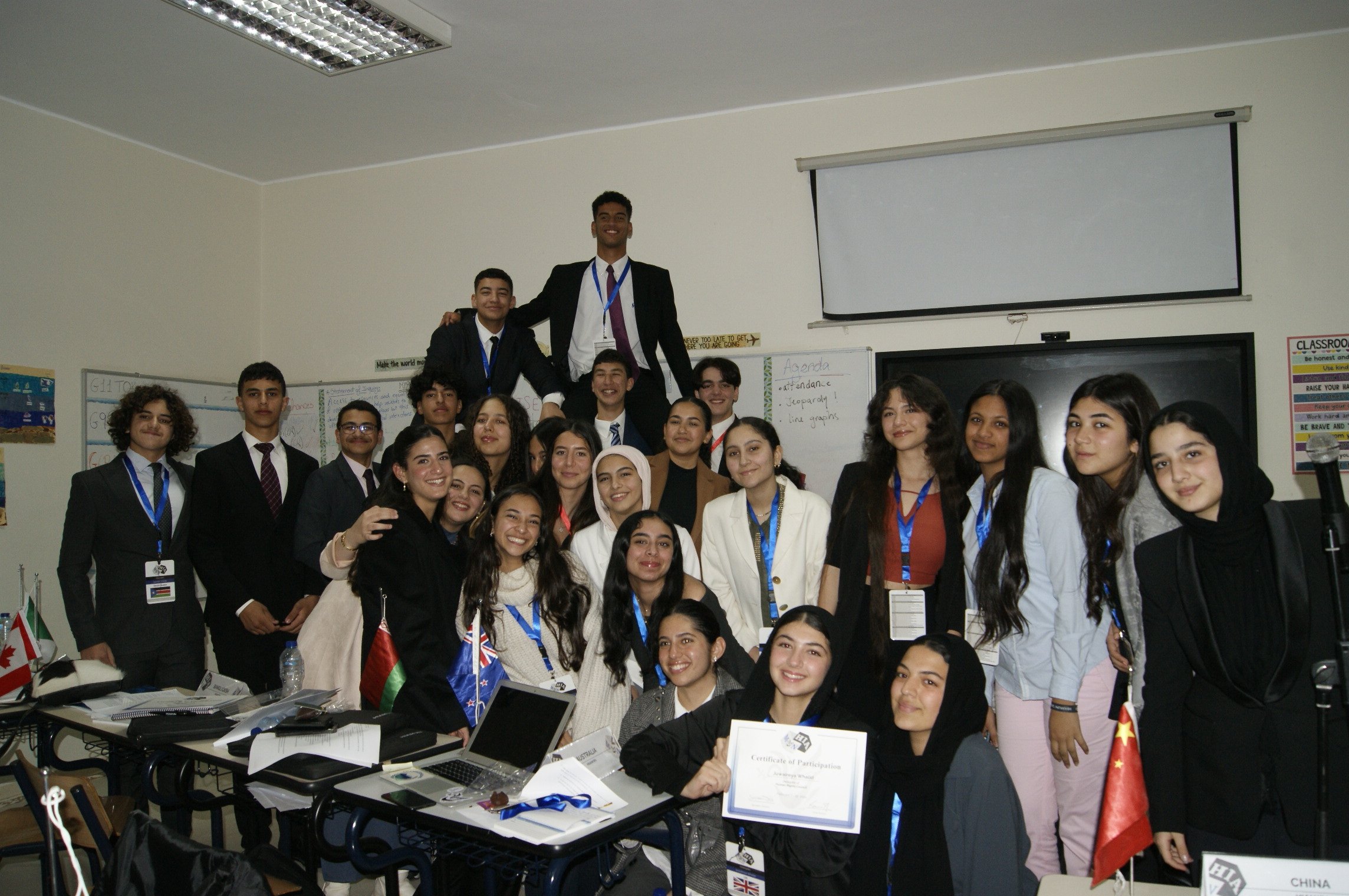Human Rights Council
Omar Mohamed, President
Juwaireya Whalid, Chair
Ladies and Gentlemen,
As we convene in this esteemed Model United Nations assembly, I am deeply honored to address you as the President of the Human Rights Council for this year’s HIAMUN’25. Our theme for this session, is the complex networks of synapses within the human mind, as they are the neurons where the brain connects and communicates. We today act as the connections that help humans communicate their rights
The Human Rights Council (HRC) is a principal organ of the United Nations (UN) responsible for promoting and protecting human rights around the world. Forty- Seven member states elected by the UN General Assembly, the HRC meets regularly in Geneva to address human rights violations, conduct thematic reviews, and make recommendations to member states. It works to advance the principles outlined in the Universal Declaration of Human Rights and other international human rights instruments, engaging in dialogue, monitoring, and reporting on human rights issues globally.
Throughout our sessions, we will navigate through the complexities of human rights, focusing on three pressing issues that demand our attention and collective action.
My honorable chair Juwaireya and I have chosen three prominent topics that we believe are vital to discuss as they not pose a threat to basic human rights that we simply won't accept.
Firstly, the issue of gender identity and sexual orientation stands as a crucial boundary in our quest to find equality. We strive to encourage societies to embrace diversity and respect individual autonomy. We must address discrimination and oppression based on sexual orientation and gender identity and seek resolutions to protect the Human rights of all individuals.
Secondly, the question of employing enhanced interrogation methods on prisoners and detainees pushes us to confront the ethical boundaries of interrogation practices. In our hunt of justice and security, we must uphold the fundamental principle that all individuals, regardless of their circumstances, are entitled to humane treatment and protection from torture or cruel, inhuman, or degrading treatment.
Lastly, safeguarding the human rights of civilians during times of war demands our supreme attention and dedication. As conflicts continue to destroy communities around the world, it is mandatory for us to ensure the protection of innocent lives, the provision of humanitarian aid, and the accountability of all parties involved in armed conflict.
Juwaireya and I are very excited to welcome you to HIAMUN’25. We urge you to break the silence and participate in the intense debates as we wish to see effective connections and communication to come up with appropriate solutions for the issues present in this year’s conference. We hope all of you find this conference a memorable one full of experiences that will help expand your knowledge and evolve as an individual.
Thank you.
Omar Mohamed, President of the Human Rights Council
Topics
1. Addressing the issue of rights related to gender identity and sexual orientation. (Podcast)
2. The question of using enhanced interrogation methods on prisoners and detainees. (Podcast)
3. Safeguarding the human rights of civilians during times of war. (Podcast)










